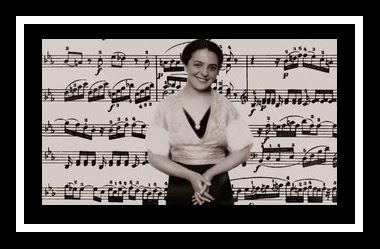TASHA TUDOR...
illustrator, author, remarkable woman
1915 - 2006
Tasha Tudor, the beloved children's book illustrator, was born Starling Burgess in 1915. For her, that was almost 100 years too late. Living in New York City until she was nine, she moved to her aunts in rural Pennsylvania after her parents divorced. The freedom of country life agreed with her and her desire to live an 1830s lifestyle began to grow.
While in Redding, she met and married Thomas McCready. He helped her to fulfill her dream when they purchased a 17 room house on 450 acres without running water or electricity. There, her four children were born and Tasha's creativity blossomed as she began to write and illustrate her own stories.
 She often drew pictures of her children, dressed in period clothing. Her daughter Bethany recalls feeling like they were living some of the wonderful fairy tales and stories their mother read to them. She also enveloped them into her world of fantasy, passing on her love of acting and playing with dolls. They devised many activities for the dolls, holding fairs and parties and making miniature Christmas presents.
She often drew pictures of her children, dressed in period clothing. Her daughter Bethany recalls feeling like they were living some of the wonderful fairy tales and stories their mother read to them. She also enveloped them into her world of fantasy, passing on her love of acting and playing with dolls. They devised many activities for the dolls, holding fairs and parties and making miniature Christmas presents. 
They even sent letters and parcels through their own special mail service called the "Sparrow Post" All of this served as inspirations for Tasha's drawings.

During this time, her husband encouraged her to publish her first book...
PUMPKIN MOONSHINE.
Fifty years later it was still in print.

Because of the success of her books, Tasha was able to realize her dream of living in Vermont. In the 1970s her son Seth built her a home modeled after a nineteenth century farmhouse, using only hand tools in the construction. With her beloved Corgis for company she tended her beautiful garden, continued to draw and lived happily in a time and space of her own making. She was legendary for her pies.
According to Richard Brown, an editor at Biblio, "It was a magical place, east of Vermont and west of New Hampshire, caught in the year 1830. A handful of floppy eared goats grazed in the barnyard, doves strutted and preened along the roof ridge and a brightly colored flock of chickens wandered about."
Watch the video below and enjoy her amazing garden. The narration is in Japanese (the only copy I could find) but you will get to hear Tasha speak.
Tasha Tudor wrote and illustrated over 100 children's books, leaving a legacy in art of a much, much gentler time. I sat with her one afternoon when she came to speak to a group of women. She was not only delightful but very funny and a savvy business women. She told us that when she finds small birds and animals that are dead she puts them in her freezer. Thawing them a little, they make excellent models. She laughed when she recalled her refrigerator repair man's shock as he opened her deep freeze.
Later we sat in the garden and I watched her sketch. She drew two adorable rabbits lying on their tummy's with their noses touching. She sold it to my friend for $250.00 I will always treasure that afternoon, it was "magic."
Tasha passed away in 2006 at the age of 92. Here are some of my favorite pieces of her work...













